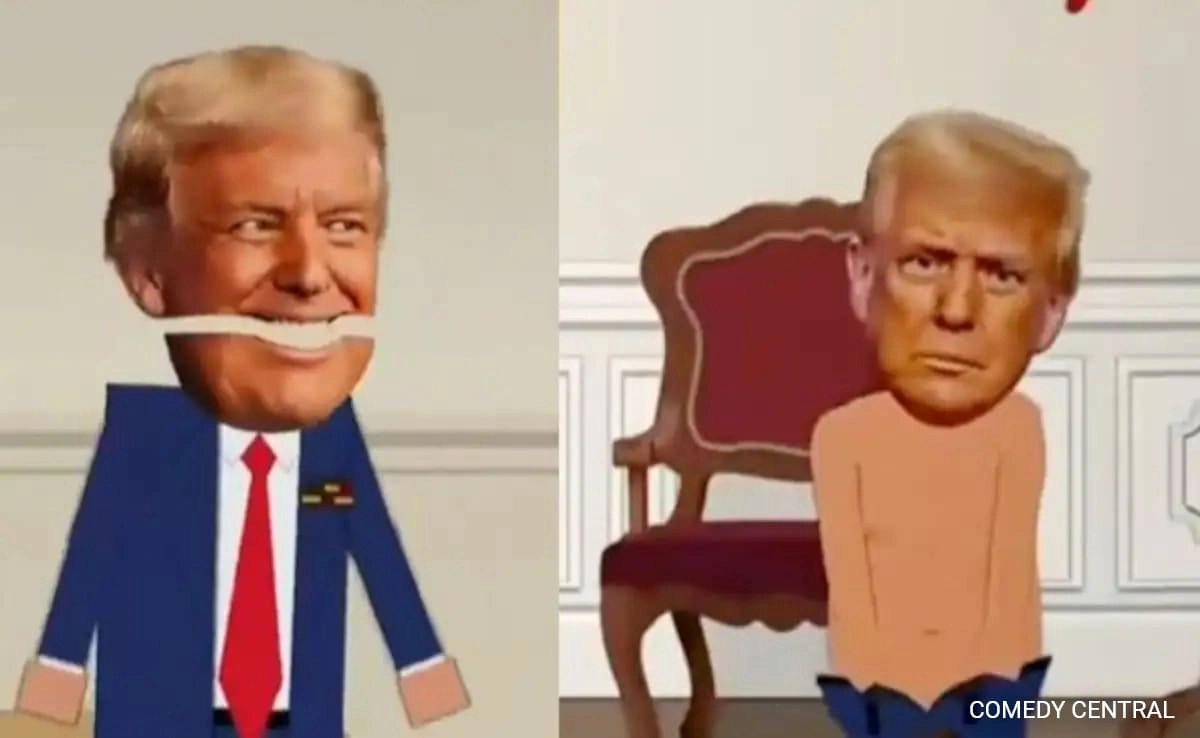In a recent episode of the iconic animated series “South Park,” co-creator Trey Parker made headlines with a sardonic remark regarding a controversial scene featuring a naked depiction of former President Donald Trump. The show, known for its irreverent humor and sharp social commentary, has never shied away from tackling political figures, and this instance was no exception. Parker’s comment, “Terribly sorry,” was delivered with a heavy dose of sarcasm, showcasing the show’s signature blend of satire and critique. This moment not only highlights the creators’ willingness to push boundaries but also reflects the ongoing discourse surrounding political satire in contemporary media.
The scene in question has sparked a flurry of reactions, ranging from outrage to laughter, underscoring the polarizing nature of Trump’s presidency and the subsequent cultural responses. South Park’s approach has always aimed to provoke thought and discussion, often using shock value to convey deeper messages about society and politics. The naked Trump portrayal serves as a metaphor for vulnerability and the often absurd nature of political personas, inviting viewers to reflect on the absurdities inherent in political life. Parker’s flippant apology can be interpreted as a commentary on the state of political discourse, where satire becomes a tool for both critique and entertainment.
Moreover, the episode exemplifies South Park’s enduring relevance in the landscape of political satire. As the nation grapples with the complexities of leadership and public perception, shows like South Park continue to offer a lens through which audiences can engage with these issues. The creators utilize humor as a mechanism to address serious topics, allowing viewers to confront uncomfortable truths while simultaneously finding levity in the chaos. Parker’s sardonic remark encapsulates this ethos, suggesting that while the creators may not take themselves too seriously, they remain acutely aware of the cultural impact of their work.
In conclusion, the “naked Trump” scene and Parker’s quip serve as a vivid reminder of the power of satire in shaping public discourse. South Park remains a cultural touchstone, unafraid to delve into the absurdities of modern politics. By blending humor with pointed social commentary, the show fosters a space for dialogue, encouraging audiences to reflect on the complexities of contemporary society. As we navigate an ever-changing political landscape, the role of satire becomes increasingly crucial, and Parker’s remark is a testament to the show’s commitment to its craft and its audience.




